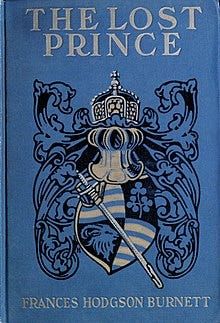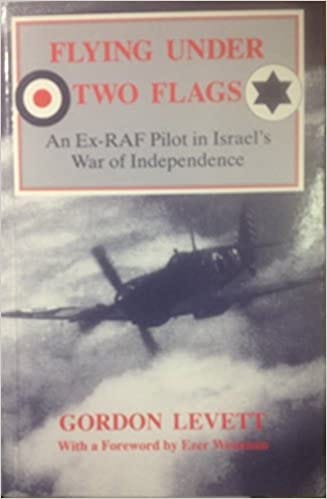More Short Reviews! After the comments on my six-month post, I'm considering making this a monthly feature, and balancing about half fiction and half nonfiction.
This time, I'm reviewing two novels and two history books I've read recently.
The Lost Prince, by Frances Hodgson Burnett (fiction)
Published in 1915, this's one of the last novels by Victorian children’s author Frances Hodgson Burnett. It's a kids' Ruritanian adventure novel, set vaguely in the Victorian era, but with as much imagined as actual adventure. Our young protagonist Marco and his father are political exiles from a fictional Eastern European country in London, dedicated to restoring Samavia's from its political turmoil and bringing back its ancient royal line.
The first part of the novel is set in pedestrian surroundings, with Marco living conscious of his larger duty, keeping his father's secrets, and training himself for whatever duties might come his way. He befriends some street urchins and - through his character and air - raises them to want greater things for themselves too. And then, a journey for Samavia's cause does come to him, to secretly spread word to other supporters of the cause that something is about to happen - he hasn't been told what, and is happy not to know. But it turns out that Marco and his father's dreams are about to be fulfilled.
Looking back on the novel, not that much happens, and Marco himself does less. Yet, as I read it, it didn't feel that way. Almost the first half of the book is in London, with Marco befriending the street urchins and playing games of pretend with them increasingly focused on pretending to be fighting for Samavia. The eventual revolution happens offstage. The story Burton tells - then, and in some respects later as Marco refuses to know the specifics of what the message he's carrying is for - is one of readiness and consciousness for adventure. I'm sure it was designed for his young readers eager for adventure themselves.
Looking back, it is sort of slow... but it does work; I enjoyed reading it. Be that as it may, I'm sure I would've liked this book when I was the age of its target audience, and I'm glad I read it even now.
Then Arthur Fought, by Howard M. Wiseman (fiction)
This is a labor of love over years by a self-taught amateur; a reconstruction of (as Wiseman calls it) a "potential history" of Britain during the Dark Ages, from the end of the Roman Empire through the days of the fabled King Arthur to the coming of Augustine of Canterbury. Wiseman takes the poems and chronicles and tales at face value as much as practicable, from Nennius's marvel stories to saints' lives to even Geoffrey of Monmouth's infamous fictional "History of the Kings of Britain", massaging them into a narrative that could have happened, consistent with itself and with outside history. He copiously cites almost each paragraph to its original source, and justifies any massaging he's done to it.
What we get is a plausible-sounding narrative. Even if it tests credulity at some points with cinematic escapades and victories, it could have happened. Wiseman freely admits this isn't anywhere near the most plausible history - but it's possible, and entertaining as a story. We have here a historical Arthur, with generations of historical context around him from the departure of the Roman armies through the Christianization of the Saxons. Just like in Geoffrey of Monmouth, Arthur is the center of the narrative, with more chapters spent on him than any other character. We have the most interesting justification for Arthur's character differing between the old tales: Wiseman has him take a head wound in battle that makes him more prone to rage. We also have an innovative interpretation of Mordred.
If you're looking for an Arthurian story, I wouldn't recommend this. Wiseman writes reminiscent of the chronicles and bardic triads he's sourcing this from. Like Tolkien's _Silmarillion_ (as opposed to _Lord of the Rings_), he rarely gets down to ground level to really let us see the characters. But if you're wanting a saga of Dark Ages Britain - if you've enjoyed, say, Rosemary Sutcliff's historical novels, or some of the chronicles and triads that Wiseman is sourcing from - then I'd recommend this.
The Birth of the Codex, by Colin Roberts & T. C. Skeat (history)
Roberts and Skeat, in this disappointingly short work, dig into what little we know of the move from books being written using scrolls to their being written using codices (that is, essentially, bound books like today). It took place in the Roman world, gradually during the first four centuries AD. We don't know why or how it progressed; Roberts and Skeat evaluate and dismiss several claimed advantages of early codices. For instance, there were known techniques for scribes to erase mistakes on scrolls, and finding individual passages on pages apparently wasn't actually commonly done, so those weren't reasons to switch to codices.
They also dismiss some other authors' guesses that more casual and less literary works used codices early on, pointing out we don't have any evidence of that - though the fact that such hypotheses can be seriously entertained shows how scanty our evidence is.
What we do know is that the Christian Church was the first main user of codices (at least in Egypt where most of our evidence is from), for Biblical texts. Roberts and Skeat surmise that they adopted the codex to emphasize their dissimilarity from other religions. Though - in the state of our evidence - that must remain only a guess.
Flying Under Two Flags, by Gordon Levett (history)
This's the autobiography of an WWII RAF transport pilot who subsequently volunteered to fight in the Israeli war of independence.
In WWII he - to his frustration - was assigned to training and transport commands. He spent the war in England and Canada, and just as he would finally have gotten posted close to the front, the war ended. Shortly after, he got drummed out of the RAF due to a combination of political outspokenness and irritating the commanders. Several years later - not having found any good job due to his dishonorable discharge - he enthusiastically volunteered for Israel as it was both a cause he believed in and a chance to fly in combat. And, he did - as he tells at length. He loved that time, but he didn't think he could stay in Israel, so he returned to Britain and another series of odd jobs interspersed with various flying jobs which he tells at length.
The Israeli War of Independence is the heart of this book, and I appreciated that tale - or rather, his tale amid that war. The feeling of being besieged and fighting on all fronts (even, at one point, a couple miles from the Tel Aviv airstrip Gordon was landing his arms shipment on) pervades that. But the larger story of Gordon's life, I can't help thinking of as a life without direction. He keeps quitting or getting turned out of jobs, only to realize too late that the world of flying is bureaucratizing (into well-ordered airlines) around him, he can't find anything he likes on the ground, and he missed his chance.








You sure do read a lot of books! I wish I could read so fast.
Short reviews is my favorite part of your blog. Sometimes I find books to read, but even when I don't, it is fascinating to hear about books I haven't read.
I am curious about Birth of the Codex. It has always been my impression that scrolls simply cannot contain anywhere near the volume of bound books. Although maybe this only becomes an issue when the printing press is invented. Does the author talk about the volume issue in the book?